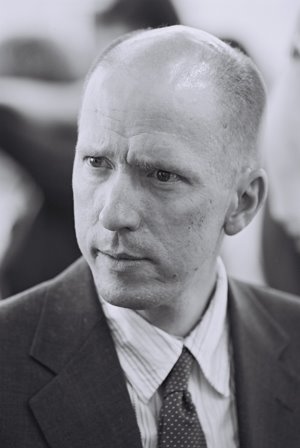The problem with bubbles is not so much that you can't spot them. In 1998/1999 it seemed like everyone I spoke to recognized that the there was a dot-com bubble. The real quandary--it seems to me--is that some people continue to make a ton of money as the bubble continues to expand. If you listen to the prophets at the time they actually issue their forecasts of Doom, you may end up missing the ride up.
Here's an example. In a New York Times book review today, Daniel Gross (who writes very good articles for Slate) argues "The bailouts are especially galling given the ample warnings, like those sounded by John Cassidy of The New Yorker, who warned in November 2002 that housing would be the next crash." Wow, this makes John Cassidy look really prescient. If only we had listened to him, we wouldn't be in this fix. I might still have my nest egg!
But wait, look at the data for the Case-Shiller Index.
If you had bought the average house in 2002, the year Cassidy issued his warning (which you can read here in full but I think the title, "The Next Crash" and the subtitle, "Is the housing market a bubble that’s about to burst?" conveys the main idea), the price was about 115 (with 100 being the 1988--2008 average). Even if you sold today at 160, you would have earned nearly 40%. And if you got out at the peak (and we'd all like to think we could do that), your return is over 60%. The run up from 1997 to 2002 was just 15%. So by heeding Cassidy's warning in 2002, you miss out on something like 4/5 of the potential gains.
So the problem with bubbles is not that they're impossible to recognize, it's just very very hard to figure out how much more the bubble will expand before it bursts. One other problem. The bubble analogy is of dubious value because many of the so-called bubbles don't actually burst in the sense of a sudden collapse in prices. As you can see in the figure above, the rate of descent since the peak in housing prices is if anything less steep than the rate of ascent before the peak. How much further will housing prices fall and how long will it take? If Cassidy was right about the bubble in 2002, then we still have a long way down to go.
Cassidy also got the timing wrong for a previous "bubble," the S&P 500 in the late 1990s. On August 17, 1998, when his article "Pricking the Bubble" appeared in the New Yorker, the S&P500 closed at 1084. It would rise a further 43% over the next two years reaching a high of 1553 on March 24, 2000. Thereafter, the bubble did not burst, but deflated gradually, briefly reinflating to 1530 on September 1st, and not falling below 1084 until April 2002. (All data from Yahoo!). So if Cassidy had believed that the S&P500 was a bubble in mid-1998 and sold stocks short, he would have had to wait nearly 4 years to close his position with a profit--not too mention some very unpleasant margin calls in mid-2000.
